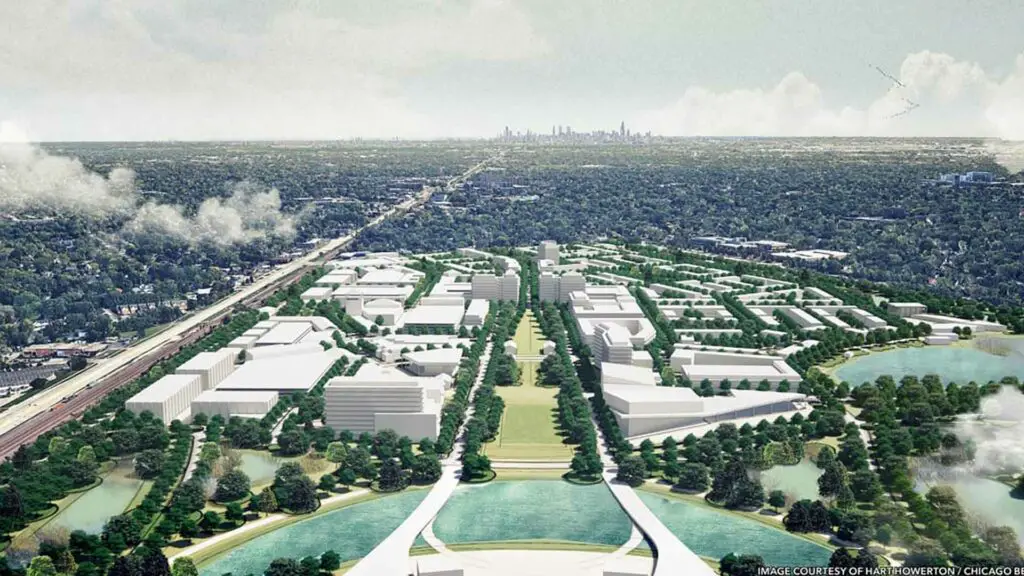The Chicago Bears have confirmed their plans to build a new stadium to house their NFL franchise, and they have acquired the site of one of the oldest and most popular racecourses as part of the development.
Arlington Park has been hosting traditional horse racing and harness racing since the 1830s and has long been considered one of the premier venues for the sport on the eastern side of the United States.
However, the Chicago track closed its doors for the final time in September 2021 and brought the curtain down on more than a century of action that saw greats like Secretariat delighting the often-capacity crowd of over 20,000 people.
Arlington Park was also one of few locations in Chicago where bettors could legally place a wager or two, and while a smattering of casinos remains in the Windy City, there are increasingly few places to gamble. The good news for bettors is that online sports betting is legal across Illinois and that many of the sportsbooks that are licensed and approved there do double up as popular horse racing betting sites. Firms like FanDuel offer odds for the latest races from tracks including Santa Anita and Gulfstream Park, while live streaming allows those missing their racing fix at Arlington to watch the action from venues across the US and overseas on their computer and mobile devices.
Still, you can forgive residents in the city for feeling aggrieved that a slice of history is to be wrenched from their locality – even if it appears as though it will be replaced by another considerable sporting concern.
Arlington’s New Age
It was rumored that the Chicago Bears were interested in purchasing the Arlington Park site as far back as February 2021, when it was revealed that the Churchill Downs company was interested in selling the 326-acre property.
The same rumor mill suggested that the Bears struck an agreement with Churchill Downs to acquire the land a year ago, but official confirmation – which came via a series of recently-published artists’ blueprints – has only just been forthcoming.
In the drawings, the NFL franchise confirms its vision for the redevelopment. They want to attract the Super Bowl and NCAA Championship to the city and build a legacy akin to that of Michael Jordan and the Chicago Bulls, and have pledged $192 million – none of it to come from the public’s coffers, thankfully – to build a world-class venue on the Arlington Heights real estate.
As well as state-of-the-art football facilities, the Bears plan to incorporate several commercial ventures into their plans, which include dining and hospitality, a fitness center, office blocks, and new green spaces. According to their PR release, the new-look Arlington Park could create nearly 10,000 permanent jobs in the area.
Wounded Soldier
There is, however, some skepticism about the deal – not least because the Bears’ lease on Soldier Field isn’t scheduled to run down until 2033. They can effectively but their way out of the agreement, although that’s not until 2026 and will cost the not-inconsiderable sum of $84 million. That would take the total cost of the Bears’ relocation to Arlington Heights past the $280 million mark, and while they – like most NFL franchises – are good for the money, it puts extra pressure on the project to be a success.
One outcome of the move would be that the Bears would leave the city of Chicago – Arlington is in the suburbs – for the first time since 1920, where they have been based at first Wrigley Field until 1970 and then Soldier Field ever since.
The major of Chicago, Lori Lightfoot, has been fairly cagey in her response to the dilemma so far, but admitted she and city planners had an ace or two up their sleeves should the Bears ultimately uproot. “We’ve got Plan B, Plan C, and others in the works as well if the Bears decide they’re going to abandon the city of Chicago,” she said. “We’re going to continue our discussions with the league.”
The insinuation of that comment is that Lightfoot has discussed with the NFL the possibility of a second football franchise heading to the Windy City, which would see them follow in the footsteps of Los Angeles and New York as dual-NFL hosts.
